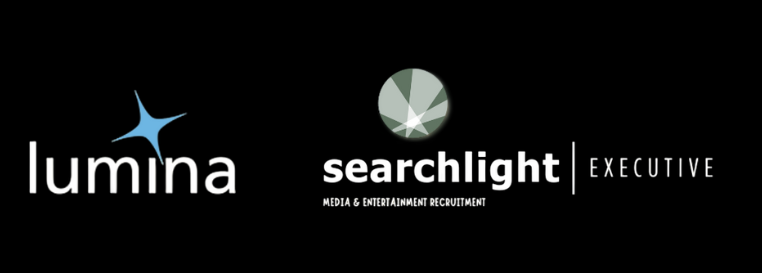As Lumina builds up towards our exclusive 2018 HR Forum – a networking event in London for HR professionals in the media industry – we take a look at some of the hot topics in the area. First up, we report on what the future workplace may transform, with new AI partnerships and decreases in remote working.
Remote Working
Remote working, or telecommuting, is not anything new. Allowing employees to work from home connecting into work PCs and still fulfill all their functions has been on the rise in the recent decades. Leading businesses such as IBM were one of the early adopters of the movement. Not only did their employees generally feel happier, but the business saved fortunes on expensive space. Business Insider reported in May 2017 that telecommuting initiatives had saved the company 78 million square feet, roughly $100 million reduction in expenditure. These savings and their employees remained as productive as before.
However, IBM have recalled all telecommuting employees back to the offices in 2017. Fellow colleagues are brought under one roof. Marketing departments based in new workplaces promotes plenty of new concepts. However, this initiative meant employees must relocate to one of six offices in the USA. The future workplace for IBM used to be in the comfort of one’s own home, but now the office is their place of work.
Office Playgrounds
Equally, the office has undergone a revolution. The rows of desks is now the traditional format, but the disruptors of the world have not only affected the industry, but also the workplace. The likes of Google have recreated the workplace to improve the experience of the company. Sleep pods, basketball and mini golf on roofs all feature in the internet giant’s offices around the world. Closer to home, Red Bull employees in Soho have no need to go down the stairs – not with a slide option available. This adult-playground approach might be patronising for some, but these are companies that top employee satisfaction tables regularly.
Soho is not the only revolutionised area; London has undergone workplace transformation for the media industry. The Chiswick Park development in West London has gradually progressed from the early 2000s and now houses UK offices for major media companies, including Technicolor, Discovery, Paramount and Vue Cinemas. Certainly major brand names have been attracted by the focus on social activities and events for employees, including workshops and classes. The employer-employee relationship will be redefined with the service and will likely improve employee retention rates. Here at Lumina, we have shifted to new working patterns too with our stylish new offices in the heart of Aldwych, London. We are proud to have refreshments on tap – including beer, prosecco and cider in the evenings – plus chill out zones throughout the building, including our exclusive roof terrace. Simply put, it provides us with great hosting facilities.
Artificial Intelligence
In another major revolution, the future workplace will feature Artificial Intelligence in some form without a doubt. Critics have called out on the technological development as large portions of employment risk being wiped from the economy, however there are some benefits from AI. Many critics point out that manufacturing processes are already becoming AI-controlled, however there is an impact on middle management too. AI is gathering pace at an astounding rate and is capable of sophisticated data analysis.
However, does this truly affect the media industry? Absolutely. Channel scheduling handled by AI – identifying trends in historical viewership figures to ensure maximum impact. Netflix already acknowledges all its data when it comes to commissioning its own content. By gathering the viewer data allows the streaming giant to find the next hit, personalising their content to its audience. Other SVOD players may find their audiences prefer other genre and content, including retail giant Amazon which axed its comedies slates in favour of big dramas to rival Game of Thrones. Of course this has an impact on the career ladder. As AI technology becomes capable of forecasting and reporting, the natural career ladder breaks.
Lynda Gratton from London Business School wrote that “it is imperative to embrace a more flexible approach to career development” (Megatech – Work and the Rise of the Machines p.191). In the future, careers will be developed through several businesses, rather than rising through the ranks. As levels are eroded away, sideways moves allow skill development for the higher echelons. Gratton suggests that talent-management will be important in the coming decades, by offering guidance to navigate the new ladders. Lumina can help in this instance with our network of executive coaching services, ensuring your talent is the best in the sector.
AI Partnerships
However, AI does have its benefits. Firstly, day-to-day administrative tasks are likely to be handled by software, releasing time for individuals to focus on projects. Furthermore, the future workplace may well assist employees rather than hinder their progression. Ultimately, AI will relieve resources, opening additional opportunities for revenue generation. And through AI partnerships, there are possibility of the creation of new positions and industries. AI machines will require high-skilled maintenance and near-constant efficiency developments in the early stages.
The Future Workplace
Rather than just a place of employment, the future workplace will be a place to relax, socialise and develop. Leading technology companies have recognised the benefits of a workplace that gives back to employees. Whether its with its events, opportunities to learn and an office that gives workers the chance to be inspired. The days of workbenches in rows are gone, the days of office breakout zones are here. The future workplace will be dramatically different from what we know today. Career ladders will be broken, AI will partner to assist in day-to-day operations and offices will become more attractive in the next few decades.
To receive updates regarding the HR Forum, register your interest by sending an email to quintin@luminasearch.com.



